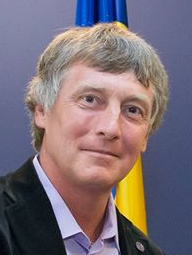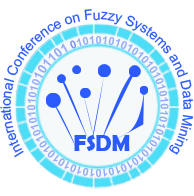Keynote Speaker

Dr. Dmitry Zaitsev, Professor
Department of Information Technology, Odessa State Environmental University, UkraineSpeech Title: High Performance and Unconventional Computing for Fuzzy Systems and Data Mining
Abstract: Fuzzy systems and big data mining require considerable computational resources. Traditionally high performance computing is involved represented by supercomputers and clusters. A classification of fuzzy systems and data mining tasks is provided with regard to required computing capacity, solution time limitations, concurrent algorithms and others. An overview of conventional high performance computing systems is presented, including recent most powerful computers, their architecture and programming technology for multicore distributed nodes supplied with graphical processing units. Since traditional architecture suffers from memory-processor bottlenecks, unconventional computing models are in demand such as Sleptsov nets, cellular automata, spiking neuron systems, neuron networks and others. Their implementation, especially in the form of dedicated hardware, promises hyper-performance at the expense of mass parallelism and fine granulation provided by computing memory.
Biography: Dmitry A. Zaitsev received the Eng. degree in Applied Mathematics from Donetsk Polytechnic Institute, Donetsk, Ukraine, in 1986, the Ph.D. degree in Automated Control from the Kiev Institute of Cybernetics, Kiev, Ukraine, in 1991, and the Dr.Sc. degree in Telecommunications from the Odessa National Academy of Telecommunications, Odessa, Ukraine, in 2006. He has been a Professor of Information Technology at Odessa State Environmental University, Ukraine, since 2019. He developed the analysis of infinite Petri nets with regular structure, the decomposition of Petri nets in clans, generalized neighborhood for cellular automata, and the method of synthesis of fuzzy logic function given by tables. He developed Opera-Topaz software for manufacture operative planning and control; a new stack of networking protocols E6 and its implementation within Linux kernel; Petri net analysis software Deborah, Adriana, and ParAd; models of TCP, BGP, IOTP protocols, Ethernet, IP, MPLS, PBB, and Bluetooth networks. His current research interests include Petri net theory and its application in networking, computing and automated manufacture. Recently he started working in the area of exascale computing applying his theory of clans to speed-up solving sparse linear systems on parallel and distributed architectures. He was a co-director of joint projects with China and Austria. Recently he has been a visiting professor to Technical University of Dortmund, Germany on DAAD scholarship, to University of Tennessee Knoxville, USA on Fulbright scholarship and to Eindhoven University of Technology, Netherlands. He published a monograph, 3 book chapters and more than a hundred of papers including issues listed in JCR. He is a senior member of ACM and IEEE. Additional information including papers, software, models, video-lectures in put on personal website via http://daze.ho.ua
